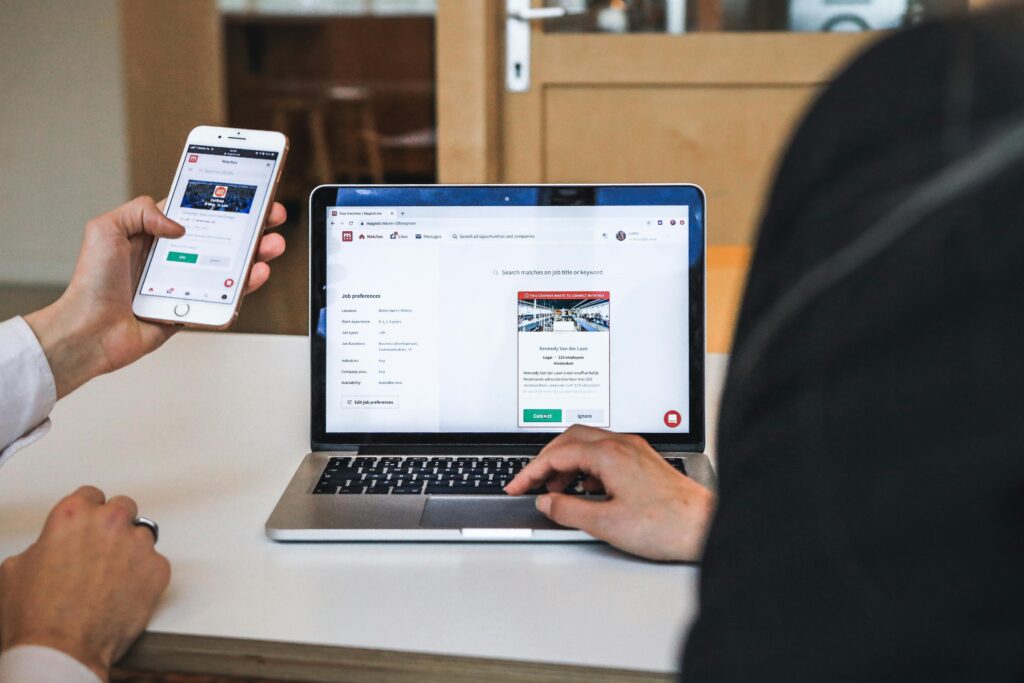How to Become a Web Developer

Introduction
Becoming a web developer is a rewarding career choice in today’s digital age. With the continuous growth of the internet and online services, the demand for skilled web developers is at an all-time high. This comprehensive guide will walk you through everything you need to know about becoming a web developer, from understanding the role to mastering the necessary skills and finding your first job.
Table of Contents
-
- Understanding Web Development
-
- Types of Web Developers
-
- Essential Skills for Web Developers
-
- Educational Pathways
-
- Building a Portfolio
-
- Finding Job Opportunities
-
- Continuous Learning and Development
-
- Conclusion
Understanding Web Development.
Web development is creating websites and web applications for the internet. It involves a variety of tasks, including web design, coding, and server management. As a web developer, you’ll ensure that websites are functional, user-friendly, and visually appealing.
Key Components of Web Development:
-
- Front-End Development: This involves the creation of the visual elements of a website that users interact with directly. Front-end developers use languages like HTML, CSS, and JavaScript to design the layout and functionality of a site.
-
- Back-End Development: This aspect focuses on server-side programming. Back-end developers work with databases, server logic, and application programming interfaces (APIs) using languages such as Python, Ruby, PHP, and Node.js.
-
- Full-Stack Development: Full-stack developers have skills in both front-end and back-end development, allowing them to build complete web applications.
Types of Web Developers
Understanding the different types of web developers can help you decide which path to pursue based on your interests and strengths.
-
- Front-End Developers:
-
- Focus on the client side of applications.
-
- Responsible for layout, design, and interactivity.
-
- Front-End Developers:
-
- Back-End Developers:
-
- Handle server-side logic and database interactions.
-
- Ensure the application functions correctly behind the scenes.
-
- Back-End Developers:
-
- Full-Stack Developers:
-
- Proficient in both front-end and back-end technologies.
-
- Often work on all aspects of web development.
-
- Full-Stack Developers:
-
- Web Designers:
-
- Primarily focus on aesthetics and user experience (UX).
-
- Use design software and coding skills to create visually appealing websites.
-
- Web Designers:
Essential Skills for Web Developers
To become a successful web developer, you’ll need a combination of technical and soft skills. Here are some essential skills to focus on:
Technical Skills
-
- HTML/CSS:
-
- HTML (HyperText Markup Language) is the standard language for creating web pages.
-
- CSS (Cascading Style Sheets) is used for styling HTML elements.
-
- HTML/CSS:
-
- JavaScript:
-
- A programming language that enables interactive web pages.
-
- Essential for front-end development.
-
- JavaScript:
-
- Version Control/Git:
-
- Tools like Git allow developers to track changes and collaborate on projects.
-
- Version Control/Git:
-
- Responsive Design:
-
- Understanding how to create websites that function well on various devices and screen sizes.
-
- Responsive Design:
-
- Back-End Languages:
-
- Familiarize yourself with languages like Python, PHP, or Ruby for server-side development.
-
- Back-End Languages:
-
- Databases:
-
- Knowledge of databases (e.g., MySQL, MongoDB) is crucial for back-end development.
-
- Databases:
-
- APIs:
-
- Understanding how to work with APIs to connect different services and applications.
-
- APIs:
Soft Skills
-
- Problem-Solving:
-
- Ability to troubleshoot issues and find effective solutions.
-
- Problem-Solving:
-
- Communication:
-
- Clear communication is essential for working with teams and clients.
-
- Communication:
-
- Time Management:
-
- Managing multiple projects and meeting deadlines is crucial in web development.
-
- Time Management:
-
- Attention to Detail:
-
- Small mistakes can lead to significant issues in coding, making attention to detail vital.
-
- Attention to Detail:

Educational Pathways.
While some web developers are self-taught, others choose to pursue formal education. Here are some common pathways:
1. Self-Teaching:
-
- Utilize online resources, tutorials, and documentation.
-
- Platforms like Codecademy, freeCodeCamp, and Udacity offer excellent courses.
2. Bootcamps:
-
- Coding bootcamps provide intensive, short-term training.
-
- They often focus on practical skills and real-world projects.
3. Formal Education:
-
- Consider a degree in computer science, information technology, or a related field.
-
- Some universities offer specialized web development programs.
Building a Portfolio
A strong portfolio is crucial for showcasing your skills to potential employers. Here are tips for building an impressive portfolio:
1. Personal Projects:
-
- Start by creating your websites or applications.
-
- Use these projects to demonstrate your skills and creativity.
-
- Personal projects are a vital aspect of a web developer’s growth, providing opportunities to practice skills, experiment with new technologies, and showcase your abilities to potential employers. Engaging in personal projects can significantly enhance your portfolio and help you stand out in a competitive job market. Here’s how to effectively leverage personal projects for your development career.
2. Contributing to Open Source:
-
- Participate in open-source projects to gain experience and visibility.
-
- This can also be a great way to network with other developers.
-
- Contributing to open-source projects is an excellent way for web developers to enhance their skills, gain real-world experience, and build a professional network. Open-source contributions not only benefit the projects themselves but also provide significant advantages to the contributors. Here’s a detailed guide on how to get involved in open source as a web developer.
3. Freelancing:
-
- Take on freelance projects to build your portfolio while gaining real-world experience.
-
- Freelancing as a web developer can be a rewarding and flexible career choice. It allows you to choose your projects, set your schedule, and work from anywhere. Here’s a comprehensive overview of freelancing, including tips, benefits, challenges, and how to get started.
4. Online Presence:
-
- Create a personal website to showcase your work.
-
- In today’s digital age, having a strong online presence is essential for web developers. It not only showcases your skills and work but also helps you connect with potential clients and employers. Here’s a comprehensive guide on how to establish and enhance your online presence effectively.
-
- Use platforms like GitHub to share your code and projects.

Finding Job Opportunities
Once you have the necessary skills and a portfolio, it’s time to find job opportunities. Here are some effective strategies:
1. Networking:
-
- Attend industry events, meetups, and conferences to connect with professionals.
-
- Use platforms like LinkedIn to expand your network.
2. Job Boards:
-
- Explore job boards like Indeed, Glassdoor, and Stack Overflow for openings.
-
- Consider remote job boards for additional opportunities.
3. Internships:
-
- Look for internships to gain experience and make connections in the industry.
4. Recruitment Agencies:
-
- Some agencies specialize in tech placements and can help match you with suitable positions.
Continuous Learning.
The tech industry is always evolving, and continuous learning is essential for staying relevant. Here are some strategies for ongoing development:
1. Online Courses and Tutorials:
-
- Take advantage of platforms like Coursera, Udemy, and LinkedIn Learning for advanced topics.
2. Stay Updated:
-
- Follow industry blogs, podcasts, and newsletters to keep up with trends and technologies.
3. Join Developer Communities:
-
- Engage with communities on platforms like Reddit, Stack Overflow, and Discord to learn from others.
4. Practice Coding:
-
- Regularly challenge yourself with coding exercises on platforms like LeetCode and HackerRank.
Conclusion
Becoming a web developer requires dedication, creativity, and a willingness to learn continuously. By understanding the different types of web developers, mastering essential skills, and building a strong portfolio, you can position yourself for a successful career in this dynamic field. Remember to network, seek job opportunities, and keep learning to stay ahead in the ever-changing tech landscape.
By following this guide on how to become a web developer, you can take the first steps toward a fulfilling and lucrative career. Embrace the journey, and don’t hesitate to seek help and resources along the way. Your future as a web developer awaits!
This article has been structured to include sections that can be enhanced with images to make the content more engaging and visually appealing. Each image placed strategically will help illustrate key points and keep readers interested.
how to optimse your website read this article








